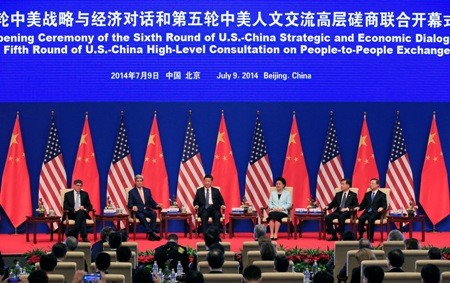Several U.S. technology firms welcomed China’s move to delay the implementation of the new bank technology rules which most foreign companies see as an unfair regulation.
Reuters reported that Beijing has agreed to postpone the implementation of the draft law following a meeting between senior Chinese officials led by Premier Li Keqiang and U.S. Treasury Secretary Jack Lew on March 30, Monday.
According to Reuters, Chinese officials have not issued any statement regarding the recent meeting, but U.S. industry groups welcomed the development.
"We are encouraged that there seems to be a delay; what we now need is a transparent, open consultation process with stakeholders and we're hopeful that will be part of the next steps," said U.S. Chamber of Commerce executive director for China Jeremie Waterman.
Several U.S. tech firms welcomed the move--including Apple, Inc, Adobe Systems, IBM, Oracle Corp., and Microsoft Corp., which belong to BSA Software Alliance; and the financial institutions and tech companies represented by the Software and Information Industry Association such as Google, Inc. and Thomson Reuters--and considered the news as highly encouraging.
SIIA senior director for international public policy Carl Schonander said that the news of the temporary deferment was a positive development as many companies in the industry have earlier asked for the suspension of the rules.
"We have to see what this means in practice," Schonander was quoted as saying. "We definitely would like to see the draft bank regulations published and we'd like to have the opportunity to provide input to this."
Reuters had earlier reported that Lew asked that the issue needed to be resolved since it would be difficult for U.S. firms in China to do business even with the pending rules.
China has been earlier reported to be working in the draft of an anti-terrorism law that would require foreign firms to entrust the encryption keywords that would allegedly enable authorities access to sensitive information. In the financial sector, another set of rules would allow state-owned banks to buy technology from local vendors.



























